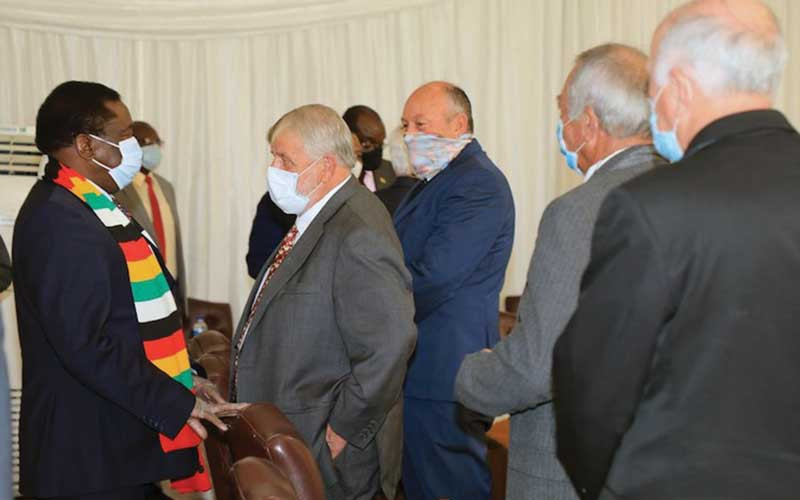
The newly elected leader of the union representing white commercial farmers who lost farms under government’s controversial programme to resettle landless blacks says members have become frustrated with Harare’s failure to honour a 2020 compensation deal.
Under the deal, known as the Global Compensation Deed (GCD) signed in July 2020, Zimbabwe agreed to pay a combined US$3,5 billion for improvements made on farms to about 4 500 affected farmers.
Half of the settlement was supposed to be paid out within a year, with the remainder paid over five years.
The agreement was part of President Emmerson Mnangagwa’s broad plan to improve Zimbabwe’s relations with the international community, and rebuild an economy he inherited in crisis as he assumed power after the November 2017 coup.
Two weeks ago, Liam Philp was elected president of the Commercial Farmers Union (CFU), replacing Andrew Pascoe.
“The farmers in general are understandably frustrated with the non-performance on obligations under the GCD,” Philp said.
“What I can tell you is the State was unable to achieve their payment obligations under the GCD.”
Under the deal, farmers ‘in a dire financial position’ were also expected to receive interim relief payments.
- Mr President, you missed the opportunity to be the veritable voice of conscience
- ED to commission new-look border post
- Zanu PF ready for congress
- EU slams Zim over delayed reforms
Keep Reading
“They are destitute and would be keen to get any financial assistance possible from Zimbabwe,” Daniel Tivadar, the CFU’s legal counsel said in a paper submitted to the union in October, which evaluates several issues with regards to the agreed payment framework.
“Interim relief payments” means payments made by Zimbabwe to commercial farmers at their special request and instance, in an amount of ZW$39 756 240.98 and the amounts paid from funds provided in the Appropriation (2019) Act…and in any subsequent Appropriation Act, to be paid by Zimbabwe to the commercial farmers, deductible from the global compensation amount,” he said.
Tivadar said the agreement “provides…(that) the parties wish to acknowledge and record that... Zimbabwe has paid…compensation to certain commercial farmers in United States dollars and interim relief payments to some commercial farmers.”
He said the foreign currency equivalence of relief payments would be calculated at the prevailing interbank rate on the date a farmer receives settlement.
“The Deed records that interim relief payments had been made. It was assumed that further interim relief payments would be made — this is why clause 1.1.10 refers to ‘any subsequent Appropriation Act’. The interim relief payments were made in Zimbabwe dollars. They are then converted into USD at the official rate and this amount is ‘excluded from the amount that would otherwise be paid to those commercial farmers’. Whilst this wording is not as clear as it could be, in my view, what was envisaged is that the USD equivalent of the amount paid to the farmer is deducted from the amount that that farmer is entitled to under the Deed.”
The paper said the Deed did not set out a legal basis for the payment of interim relief to the affected farmers.
It said the compensation Deed did not specify that the settlements had been approved by Parliament.
“There must have been a reason for the payment of interim relief as otherwise it would not have been approved by Parliament. The government accepted that on the farmer’s ‘special request and instance’ such payments can be made. It must, therefore, continue to make those payments.
“The concern relating to the setting out of the interim relief regime in a separate agreement is that, once again, the government may represent that the interim relief regime is actually the settlement mechanism of the debt acknowledged in the Deed,” the paper added.
The Independent reported recently that another legal opinion queried the validity of the GCD.
“In my view, the deed is not compliant with the Constitution as the government assumed an obligation to pay US$3,5 billion without the requisite authorisation being sought from, and granted by, Parliament,” Tivadar said.






